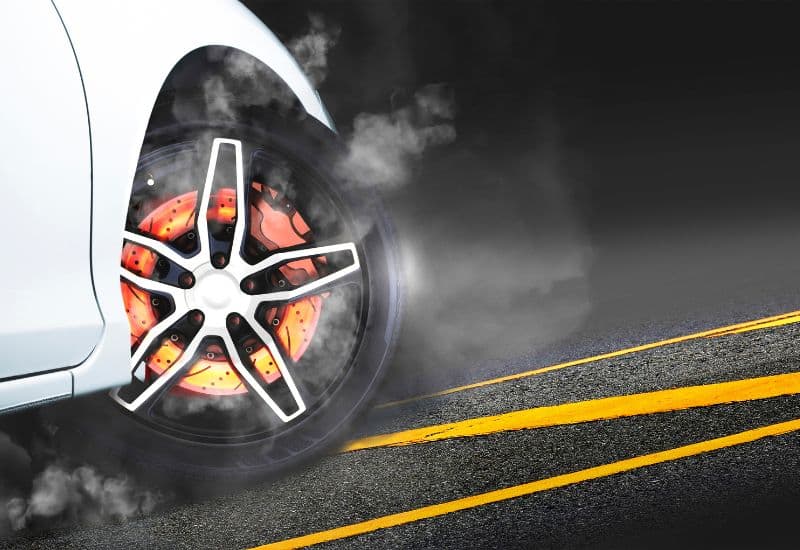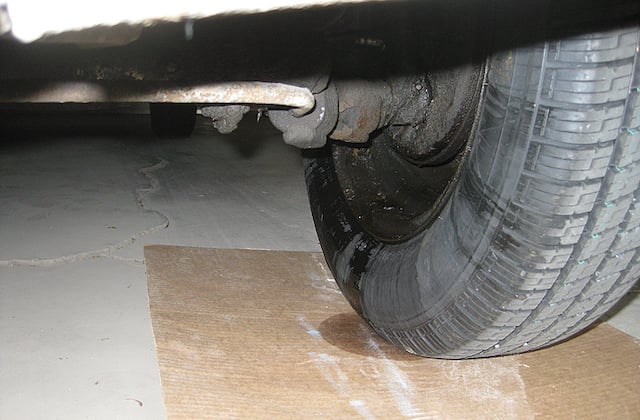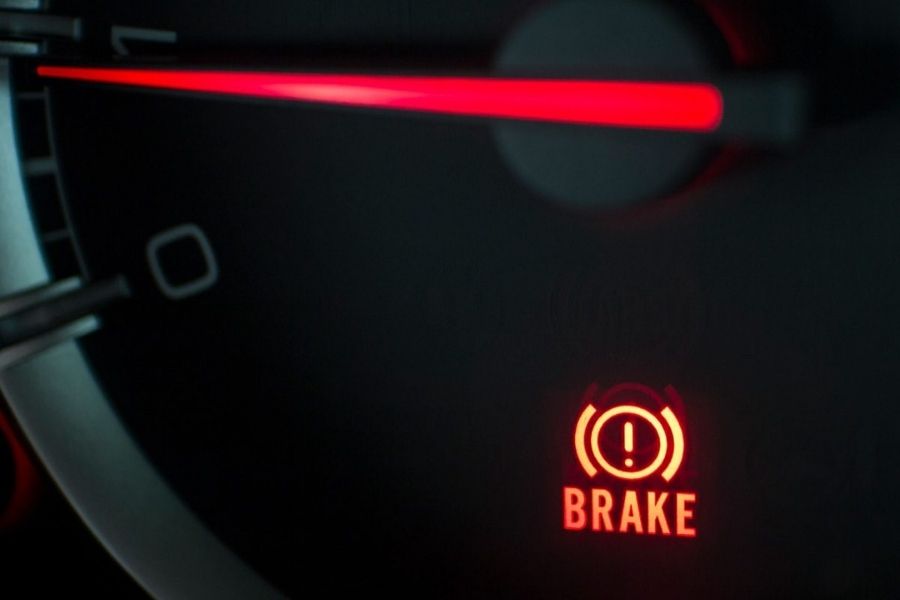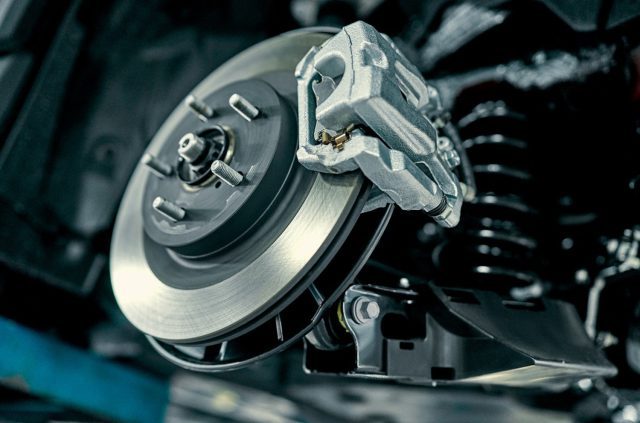Your car’s braking system is one of its most critical components, playing a vital role in ensuring your safety on the road. Recognizing the warning signs that indicate potential brake failure can help you address issues promptly, preventing accidents and costly repairs.
It’s important to be vigilant and proactive when it comes to maintaining your brakes, as neglecting them can lead to dangerous situations. Whether you’re a seasoned driver or a newcomer behind the wheel, understanding these warning signs is essential for keeping your vehicle in top condition. In this article, we’ll explore five key indicators that your car’s brakes may be about to fail.
By paying attention to these signals and seeking professional assistance when needed, you can ensure your brakes remain reliable and effective. Let’s see each warning sign in detail and learn how to keep your braking system in optimal working order.
1. Squealing or Grinding Noises
One of the most common warning signs that your car’s brakes are about to fail is the presence of squealing or grinding noises when you apply the brakes. These noises can indicate a variety of issues, but they are often a sign that the brake pads are worn out and need to be replaced.
Brake pads are designed with a built-in wear indicator that produces a high-pitched squealing sound when the pads have worn down to a certain level. Ignoring this noise can lead to further wear and damage to the braking system. If you hear a grinding noise, it could mean that the brake pads have worn down completely, and the metal parts of the brakes are making contact with the rotor.

This metal-on-metal contact can cause significant damage to the rotors and other brake components, leading to costly repairs. Grinding noises may also indicate that there is debris or rust on the brake components, which can affect their performance.
It’s important to address any unusual noises coming from your brakes as soon as possible. A professional mechanic can inspect the braking system, identify the cause of the noise, and recommend the necessary repairs or replacements. Regular brake inspections and timely replacement of worn brake pads can help prevent more serious issues and ensure your brakes remain effective and reliable.
2. Reduced Responsiveness
Another warning sign that your car’s brakes may be about to fail is reduced responsiveness when you apply the brake pedal. If you notice that your brakes feel less responsive or take longer to bring your vehicle to a stop, it could indicate a problem with the braking system. Reduced responsiveness can be caused by several factors, including worn brake pads, low brake fluid levels, or issues with the brake lines or master cylinder.
Worn brake pads can reduce the friction needed to stop the vehicle, leading to decreased braking performance. Low brake fluid levels can also affect the responsiveness of your brakes, as the hydraulic pressure needed to operate the brakes may be insufficient. Brake fluid can become contaminated over time, reducing its effectiveness and potentially leading to brake failure.

Issues with the brake lines or master cylinder can also impact brake responsiveness. Brake lines can develop leaks or become damaged, leading to a loss of hydraulic pressure. The master cylinder, which is responsible for distributing brake fluid to the brake lines, can wear out or malfunction, affecting the performance of the braking system.
If you experience reduced brake responsiveness, it’s important to have your car inspected by a professional mechanic as soon as possible. They can diagnose the issue and recommend the necessary repairs to restore your braking performance. Timely maintenance and addressing any issues promptly can help ensure your brakes remain effective and reliable.
3. Vibrations or Pulsations
Feeling vibrations or pulsations in the brake pedal when you apply the brakes can be a warning sign that your car’s brakes are about to fail. These sensations can indicate several issues within the braking system, including warped brake rotors, uneven brake pad wear, or problems with the brake calipers.
Warped brake rotors are a common cause of vibrations or pulsations in the brake pedal. Rotors can become warped due to excessive heat, which can result from aggressive braking, driving in hilly areas, or towing heavy loads. When the rotors are warped, they cause the brake pads to make uneven contact with the rotor surface, leading to vibrations in the brake pedal.
Uneven brake pad wear can also cause vibrations or pulsations. If the brake pads are not wearing evenly, it can indicate issues with the calipers, brake hardware, or improper installation. This uneven wear can affect the performance of the braking system and lead to a pulsating brake pedal.
Problems with the brake calipers, such as sticking or malfunctioning calipers, can also cause vibrations or pulsations. The calipers are responsible for applying pressure to the brake pads, and if they are not functioning correctly, it can lead to uneven braking and vibrations in the brake pedal.
If you experience vibrations or pulsations when braking, it’s important to have your car inspected by a professional mechanic. They can diagnose the cause of the issue and recommend the necessary repairs or replacements. Addressing these issues promptly can help ensure your brakes remain effective and prevent further damage to the braking system.
4. Leaking Brake Fluid
Leaking brake fluid is a serious warning sign that your car’s brakes may be about to fail. Brake fluid is essential for the proper functioning of the braking system, as it provides the hydraulic pressure needed to operate the brakes. If you notice any signs of brake fluid leakage, such as puddles or stains under your car, it’s important to address the issue immediately.
Brake fluid leaks can occur for several reasons, including damaged brake lines, worn-out seals, or a faulty master cylinder. Brake lines can develop cracks or holes over time, leading to fluid leaks. The seals within the braking system can also wear out or become damaged, allowing brake fluid to escape. A failing master cylinder can also result in brake fluid leaks, affecting the performance of the braking system.

Low brake fluid levels can reduce the hydraulic pressure needed to operate the brakes, leading to decreased responsiveness and braking performance. If left unaddressed, brake fluid leaks can result in complete brake failure, posing a significant safety risk.
If you suspect a brake fluid leak, it’s crucial to have your car inspected by a professional mechanic as soon as possible. They can identify the source of the leak and perform the necessary repairs to restore the integrity of the braking system. Regular brake fluid checks and maintenance can help prevent leaks and ensure your brakes remain reliable and effective.
5. Brake Warning Light
One of the most straightforward warning signs that your car’s brakes may be about to fail is the illumination of the brake warning light on your dashboard. Modern vehicles are equipped with various sensors and diagnostic systems that monitor the health and performance of the braking system. When a problem is detected, the brake warning light will illuminate to alert you.
The brake warning light can indicate a range of issues, including low brake fluid levels, worn brake pads, or problems with the brake lines or master cylinder. It can also signal issues with the anti-lock braking system (ABS) or other components of the braking system.

If the brake warning light comes on, it’s important not to ignore it. Continuing to drive with the brake warning light illuminated can lead to more severe problems and potential brake failure. It’s essential to have your car inspected by a professional mechanic as soon as possible to determine the cause of the warning light and address any issues.
A professional mechanic can use diagnostic tools to pinpoint the exact cause of the brake warning light and recommend the necessary repairs or replacements. Addressing the issue promptly can prevent further damage to the braking system and ensure your brakes remain effective and reliable.
By paying attention to these five warning signs, you can ensure that your car’s brakes receive the necessary care and maintenance they need. Addressing brake issues promptly can prevent further damage, save you money on costly repairs, and ensure your vehicle remains safe and reliable. If you notice any of these signs, don’t hesitate to seek professional servicing to keep your brakes in top condition.

